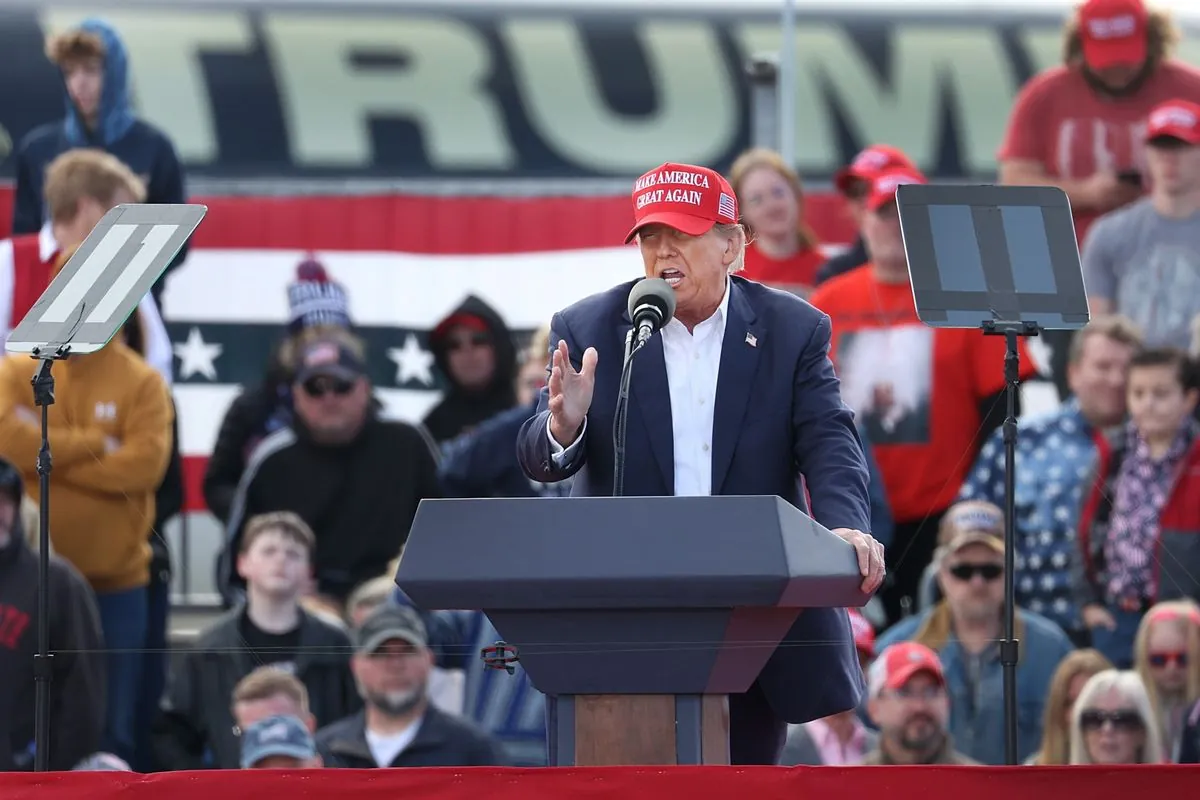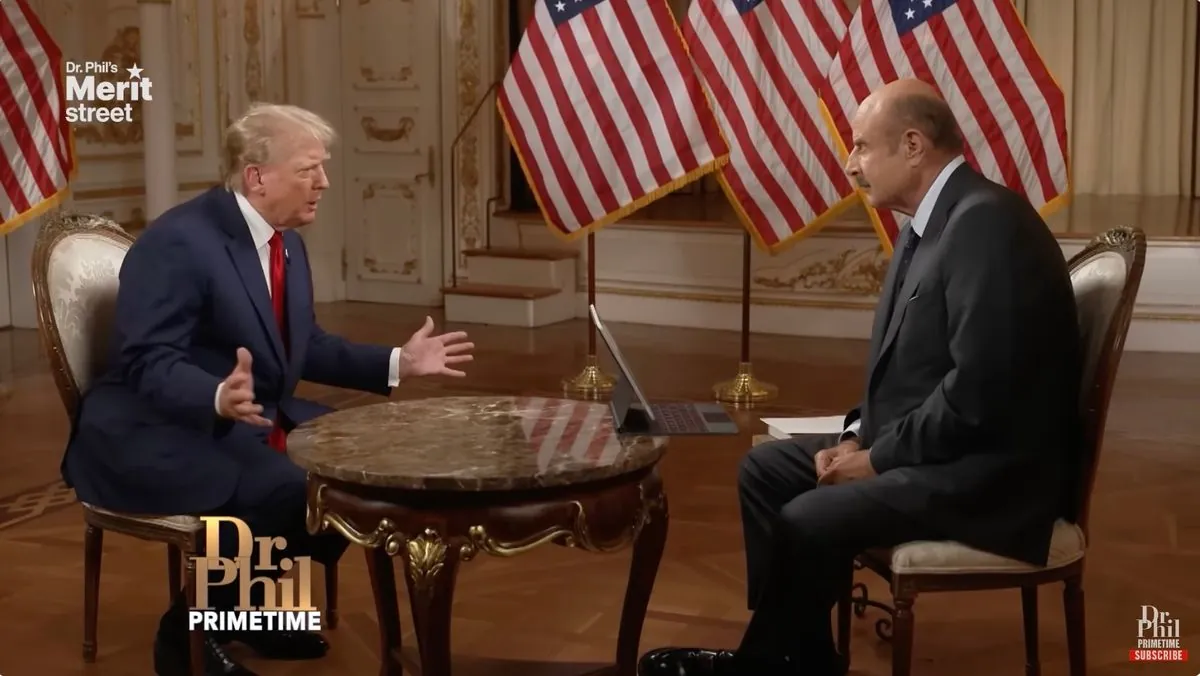Trump Claims Divine Backing in 2024 Race After Assassination Attempt
Former President Trump interprets survival of recent assassination attempt as divine intervention, suggesting God wants him to "bring the country back". This rhetoric adds religious dimension to his campaign narrative.

Donald Trump, known for his unwavering stance on electoral outcomes, has recently added a religious dimension to his campaign narrative. The former president, who has consistently refuted losses in past elections, now suggests divine intervention in his political journey.
In a recent rally in North Carolina, Trump shifted focus from voter turnout to preventing alleged cheating, stating, "Our primary focus is not to get out the vote. It's to make sure they don't cheat, because we have all the votes you need." This rhetoric aligns with his long-standing claims of electoral fraud, despite lack of substantial evidence.
The narrative took a more spiritual turn following an assassination attempt last month. In an interview with Dr. Phil McGraw, Trump described his survival as miraculous, citing odds of "20 million to one." When asked about the reason for his survival, Trump responded, "I mean, the only thing I can think is that God loves our country. And he thinks we're going to bring our country back. He wants to bring it back."

This interpretation quickly resonated with Trump's supporters, particularly among White evangelical Christians, a key demographic in his base. The incident has been framed as a divine sign, potentially influencing the perception of the upcoming election.
Trump's use of religious language, while not new, has intensified. This strategy could have significant implications for the electoral landscape, potentially framing opposition to Trump as opposition to divine will.
"Well, God believes that."
The religious framing of political events is not uncommon in U.S. history. However, Trump's explicit claim of divine backing raises questions about the intersection of faith and politics in a country that constitutionally separates church and state.
As the 2024 election approaches, this narrative adds another layer to an already complex political discourse. It remains to be seen how this rhetoric will impact voter perceptions and the overall campaign strategy of both Trump and his opponents.
The interpretation of the assassination attempt as divine intervention also raises ethical questions. While Trump sees it as a sign of God's favor, critics might question why other victims of violence don't receive similar divine protection.
As the campaign progresses, observers will be watching closely to see how this religious narrative evolves, especially if electoral outcomes don't align with Trump's expectations. The intertwining of religious belief and political ambition continues to be a powerful and controversial aspect of American politics.


































